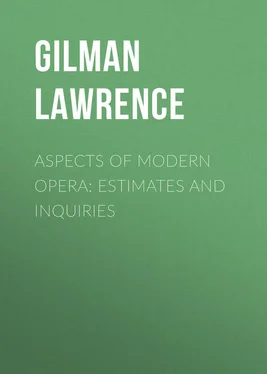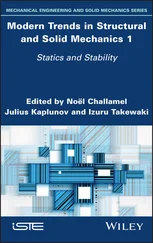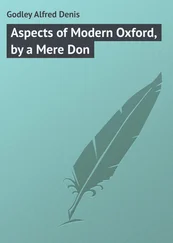Lawrence Gilman - Aspects of Modern Opera - Estimates and Inquiries
Здесь есть возможность читать онлайн «Lawrence Gilman - Aspects of Modern Opera - Estimates and Inquiries» — ознакомительный отрывок электронной книги совершенно бесплатно, а после прочтения отрывка купить полную версию. В некоторых случаях можно слушать аудио, скачать через торрент в формате fb2 и присутствует краткое содержание. Жанр: foreign_home, music_dancing, foreign_antique, foreign_prose, на английском языке. Описание произведения, (предисловие) а так же отзывы посетителей доступны на портале библиотеки ЛибКат.
- Название:Aspects of Modern Opera: Estimates and Inquiries
- Автор:
- Жанр:
- Год:неизвестен
- ISBN:нет данных
- Рейтинг книги:3 / 5. Голосов: 1
-
Избранное:Добавить в избранное
- Отзывы:
-
Ваша оценка:
- 60
- 1
- 2
- 3
- 4
- 5
Aspects of Modern Opera: Estimates and Inquiries: краткое содержание, описание и аннотация
Предлагаем к чтению аннотацию, описание, краткое содержание или предисловие (зависит от того, что написал сам автор книги «Aspects of Modern Opera: Estimates and Inquiries»). Если вы не нашли необходимую информацию о книге — напишите в комментариях, мы постараемся отыскать её.
Aspects of Modern Opera: Estimates and Inquiries — читать онлайн ознакомительный отрывок
Ниже представлен текст книги, разбитый по страницам. Система сохранения места последней прочитанной страницы, позволяет с удобством читать онлайн бесплатно книгу «Aspects of Modern Opera: Estimates and Inquiries», без необходимости каждый раз заново искать на чём Вы остановились. Поставьте закладку, и сможете в любой момент перейти на страницу, на которой закончили чтение.
Интервал:
Закладка:
Now M. d'Indy offers a curious spectacle to the inquisitive observer, in that he is, in one regard, the very symbol of independence, of artistic emancipation, whereas, in another phase of his activity, he is a mere echo and simulacrum. As a writer for the concert room, as a composer of imaginative orchestral works and of chamber music, he is one of the most inflexibly original and self-guided composers known to the contemporary world of music. With his aloofness and astringency of style, his persistent austerity of temper, his invincible hatred of the sensuous, his detestation of the kind of "felicity" which is a goal for lesser men, this remarkable musician – who, far more deservingly than the incontinent Chopin, deserves the title of "the proudest poetic spirit of our time" – this remarkable musician, one must repeat, is the sort of creative artist who is writing, not for his day, but for a surprised and apprehending futurity. He is at once a man of singularly devout and simple nature, and an entire mystic. For him the spectacle of the living earth, in lovely or forbidding guise, evokes reverend and exalted moods. His approach to its wonders is Wordsworthian in its deep and awe-struck reverence and its fundamental sincerity. He does not, like his younger artistic kinsman, Debussy, see in it all manner of fantastic and mist-enwrapped visions; it is not for him a pageant of delicate and shining dreams. Mallarmé's lazy and indulgent Faun in amorous woodland reverie would not have suggested to him, as to Debussy, music whose sensuousness is as exquisitely concealed as it is marvellously transfigured. The mysticism of d'Indy is pre-eminently religious; it has no tinge of sensuousness; it is large and benign rather than intimate and intense.
He is absolutely himself, absolutely characteristic, for example, in his tripartite tone-poem, "Jour d'été à la montagne." This music is a hymn the grave ecstasy and the utter sincerity of which are as evident as they are impressive. In its art it is remarkable – not so monumental in plan, so astoundingly complex in detail, as his superb B-minor symphony, yet a work that is full of his peculiar traits.
Now it would seem as if so fastidious and individual a musician as this might do something of very uncommon quality if he once turned his hand to opera-making. Yet in his "L'Étranger," completed only a year before he began work on his astonishing B-minor symphony, and in his "Fervaal" (1889-95), we have the melancholy spectacle of M. d'Indy concealing his own admirable and expressive countenance behind an ill-fitting mask modelled imperfectly after the lineaments of Richard Wagner. In these operas (d'Indy calls them, by the way, an action dramatique and an action musicale : evident derivations from the "Tristan" – esque Handlung ) – in these operas, the speech, from first to last, is the speech of Wagner. The themes, the harmonic structure, the use of the voice, the plots (d'Indy, like Wagner, is his own librettist) – all is uncommuted Wagnerism, with some of the Teutonic cumbrousness deleted and some of the Gallic balance and measure infused. These scores have occasional beauty, but it is seldom the beauty that is peculiar to d'Indy's own genius: it is an imported and alien beauty, a beauty that has in it an element of betrayal.
We find ourselves confronting a situation that is equally dispiriting to the seeker after valuable achievements in contemporary French opera when we view the performances of such minor personages as Massenet, Bruneau, Reyer, Erlanger, and Charpentier. They are all tarred, in a great or small degree, with the Wagnerian stick. When they speak out of their own hearts and understandings they are far from commanding: they are vulgarly sentimental or prettily lascivious, like the amiable Massenet, or pretentious and banal, like Bruneau, or incredibly dull, like Reyer, or picturesquely superficial, like Charpentier – though the author of "Louise" disports himself with a beguiling grace and verve which almost causes one to forgive his essential emptiness.
Modern Italy discloses a single dominant and vivid figure. In none of his compatriots is there any distinction of speech, of character. In that country the memory of Wagner is less imperious in its control; yet not one of its living music-makers, with the exception that I have made, has that atmosphere and quality of his own which there is no mistaking.
I have referred by implication and reservation to three personalities in the art of the modern lyric-drama who stand out as salient figures from the confused and amorphous background against which they are to be observed: who seem to me to represent the only significant and important manifestations of the creative spirit which have thus far come to the surface in the post-Wagnerian music-drama. They are, it need scarcely be said, Puccini in Italy, Richard Strauss in Germany, and Debussy in France. Yet these men built upon the foundations laid by Wagner; they took many leaves from his vast book of instructions, in some cases stopping short of the full reach of his plans as imagined by himself, in other cases carrying his schemes to a point of development far beyond any result of which he dreamed. But they have not attempted to say the things which they had to say in the way that he would have said them. They have been content with their own eloquence; and it has not betrayed them. No one is writing music for the stage which has the profile, the saliency, the vitality, the personal flavour, which distinguish the productions of these men. So far as it is possible to discern from the present vantage-ground, the future – at least the immediate future – of the lyric stage is theirs. In no other quarters may one observe any manifestations that are not either negligible by reason of their own quality, or mere dilutions, with or without adulterous admixtures, of the Wagnerian brew.
A VIEW OF PUCCINI
A plain-spoken and not too reverent observer of contemporary musical manners, discussing the melodic style of the Young Italian opera-makers, has observed that it is fortunate in that it "gives the singers opportunity to pour out their voices in that lavish volume and intensity which provoke applause as infallibly as horseradish provokes tears." The comment has a good deal of what Sir Willoughby Patterne would have called "rough truth." It is fairly obvious that there is nothing in the entire range of opera so inevitably calculated to produce an instant effect as a certain kind of frank and sweeping lyricism allied with swiftness of dramatic emotion; and it is because the young lions of modern Italy – Puccini and his lesser brethren – have profoundly appreciated this elemental truth, that they address their generation with so immediate an effect.
Читать дальшеИнтервал:
Закладка:
Похожие книги на «Aspects of Modern Opera: Estimates and Inquiries»
Представляем Вашему вниманию похожие книги на «Aspects of Modern Opera: Estimates and Inquiries» списком для выбора. Мы отобрали схожую по названию и смыслу литературу в надежде предоставить читателям больше вариантов отыскать новые, интересные, ещё непрочитанные произведения.
Обсуждение, отзывы о книге «Aspects of Modern Opera: Estimates and Inquiries» и просто собственные мнения читателей. Оставьте ваши комментарии, напишите, что Вы думаете о произведении, его смысле или главных героях. Укажите что конкретно понравилось, а что нет, и почему Вы так считаете.












